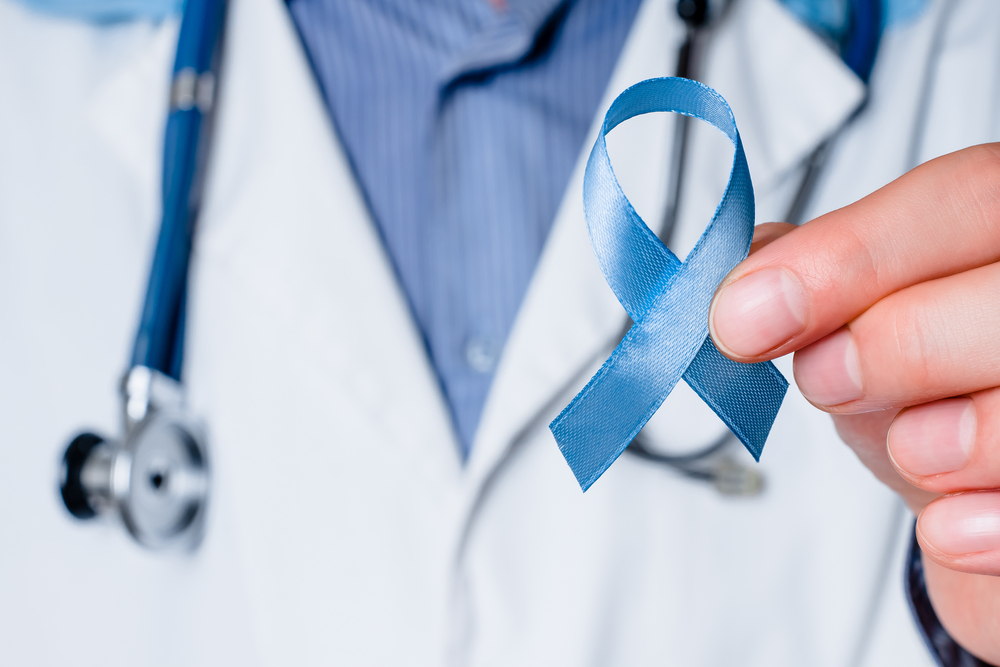Welcome, gentlemen! Today, we’re diving into a crucial topic that often takes a backseat in men’s lives: health. Specifically, we’ll be shedding light on the significant connection between lifestyle choices and cancer risk. It’s time to empower ourselves with knowledge and actionable steps to prioritize our well-being. So grab a seat, buckle up, and let’s explore five impactful lifestyle changes that can help lower your risk of cancer. Let’s take charge of our health journey together!
The Link Between Lifestyle and Cancer Risk
When it comes to men’s health, understanding the link between lifestyle choices and cancer risk is crucial. Research shows that certain habits can significantly impact the likelihood of developing cancer.
For instance, maintaining a healthy diet rich in fruits, vegetables, and whole grains can provide essential nutrients that help prevent cell damage and reduce the risk of cancer. On the other hand, consuming processed foods high in sugar and unhealthy fats may increase inflammation in the body, potentially leading to an elevated cancer risk.
Regular exercise plays a vital role as well. Physical activity not only helps maintain a healthy weight but also boosts immune function and reduces inflammation – all factors that can lower cancer susceptibility. Conversely, a sedentary lifestyle has been linked to an increased risk of various types of cancers.
By making conscious choices such as quitting smoking, limiting alcohol intake, managing stress effectively through techniques like meditation or yoga – individuals can take proactive steps towards reducing their chances of developing cancer.
5 Lifestyle Changes to Lower Cancer Risk:
When it comes to reducing the risk of cancer, making positive lifestyle changes can play a significant role in maintaining good health and well-being. Here are five key adjustments that men can incorporate into their daily routine to lower their chances of developing cancer:
A. Healthy Diet and Nutrition:
Maintaining a healthy diet and proper nutrition is crucial in reducing the risk of cancer. By incorporating a variety of fruits, vegetables, whole grains, and lean proteins into your meals, you can provide your body with essential nutrients and antioxidants that help combat harmful substances.
Choosing colorful foods rich in vitamins like A, C, and E can boost your immune system and protect against cell damage. Avoiding processed meats high in sodium and saturated fats is also key to lowering cancer risk. Instead, opt for grilled or baked options when preparing meals.
Additionally, staying hydrated by drinking plenty of water throughout the day aids digestion and helps flush out toxins from your body. Limiting sugary beverages like soda can prevent unnecessary calorie intake that may contribute to weight gain – a known risk factor for certain types of cancer.
Incorporating healthy fats such as those found in nuts, seeds, avocados, and olive oil can support heart health while providing essential nutrients for overall well-being. Remember that moderation is key when it comes to maintaining a balanced diet that promotes good health.
B. Regular Exercise
Regular exercise is not just about physical appearance; it plays a crucial role in reducing cancer risk. Engaging in activities like jogging, swimming, or even brisk walking can have significant health benefits for men. Exercise helps maintain a healthy weight and reduces inflammation in the body, which are both linked to lower cancer risks.
Furthermore, regular physical activity boosts the immune system and improves circulation, allowing your body to better fight off potential cancerous cells. Aim for at least 150 minutes of moderate-intensity exercise per week as recommended by health experts. This could include anything from playing sports to hitting the gym or simply taking the stairs instead of the elevator.
Remember that consistency is key when it comes to reaping the benefits of exercise for lowering your cancer risk. Find activities you enjoy and make them a part of your daily routine – your body will thank you for it!
C. Smoking Cessation
Smoking cessation is a crucial step in lowering cancer risk among men. Quitting smoking can significantly reduce the chances of developing various types of cancers, including lung, throat, and bladder cancer. The harmful chemicals in cigarettes not only damage the lungs but also increase the risk of cancer spreading to other parts of the body.
Making the decision to quit smoking is challenging but incredibly rewarding for your overall health and well-being. Seeking support from friends, family, or healthcare professionals can make this journey more manageable. Engaging in activities that distract you from cravings such as exercise or hobbies can also be helpful.
Remember that quitting smoking is a process that may involve setbacks. Stay committed and focused on your goal to improve your health and reduce your cancer risk. Your future self will thank you for taking this important step towards a healthier lifestyle.
D. Limiting Alcohol Intake
Alcohol consumption is a common part of social gatherings and celebrations for many men. While enjoying a drink now and then may seem harmless, excessive alcohol intake has been linked to an increased risk of various cancers in men.
Limiting alcohol intake can have significant benefits for your overall health and well-being. By cutting back on alcohol consumption, you not only reduce your cancer risk but also improve your liver function, heart health, and mental clarity.
If you find it challenging to cut down on drinking, consider setting limits for yourself or seeking support from friends or a healthcare professional. Find alternative ways to unwind or socialize that don’t involve alcohol.
Remember, moderation is key when it comes to consuming alcoholic beverages. Being mindful of how much you drink can go a long way in lowering your cancer risk and improving your overall quality of life.
E. Stress Management Techniques
In today’s fast-paced world, stress has become a common factor in many men’s lives. The constant pressure from work, family responsibilities, and other obligations can take a toll on both mental and physical health. That’s why it’s crucial for men to prioritize stress management techniques.
One effective way to reduce stress is through regular exercise. Physical activity releases endorphins that help elevate mood and reduce feelings of anxiety or tension. Whether it’s going for a run, hitting the gym, or practicing yoga, finding an activity you enjoy can significantly impact your stress levels.
Another valuable technique is mindfulness meditation. Taking just a few minutes each day to focus on the present moment can help calm the mind and promote relaxation. Deep breathing exercises are also beneficial for managing stress as they help regulate heart rate and induce a sense of calmness.
Engaging in hobbies or activities that bring joy can act as a natural stress reliever. Whether it’s painting, playing music, gardening, or spending time with loved ones – finding moments of happiness amidst daily challenges is essential for overall well-being.
Prioritizing self-care practices like adequate sleep, healthy eating habits, and setting boundaries can also contribute to better stress management. Remember that taking care of your mental health is just as important as caring for your physical health.
Importance of Regular Screenings and Check-Ups
Regular screenings and check-ups play a crucial role in maintaining men’s health and detecting any potential issues early on. These routine appointments can help identify risk factors for various cancers, allowing for prompt intervention if needed. By staying proactive with your healthcare, you are taking the necessary steps to stay ahead of any potential health concerns.
Screenings such as prostate exams, colonoscopies, and skin checks are essential tools in catching cancer at its earliest stages when treatment is most effective. Detecting cancer early greatly increases the chances of successful treatment outcomes. Remember that prevention and early detection are key components in fighting against cancer.
It’s important not to overlook the significance of regular check-ups with your healthcare provider. These visits allow for open discussions about your overall health, lifestyle habits, and any symptoms you may be experiencing. Your doctor can provide personalized recommendations based on your individual risk factors and medical history.
Don’t wait until symptoms arise to schedule an appointment – prioritize preventative care by keeping up with recommended screenings and check-ups. Taking charge of your health through regular monitoring shows a commitment to self-care that will benefit you in the long run.
Support Systems for Men’s Health
Support systems play a crucial role in men’s health journey, providing encouragement and resources to navigate potential challenges. Whether it’s family, friends, or support groups, having a strong network can make a significant difference in overall well-being.
Engaging with others who share similar experiences can create a sense of camaraderie and understanding that is invaluable when facing health concerns. Support systems offer a safe space for men to express their feelings and seek guidance without judgment.
In addition to emotional support, practical assistance such as transportation to medical appointments or help with daily tasks can alleviate stress and ensure proper care is received. It’s essential for men to reach out and lean on their support system during times of need.
By fostering open communication and seeking help when necessary, men can enhance their physical and mental health outcomes. Remember, you are not alone on this journey towards better health!
Conclusion
Taking proactive steps to improve your lifestyle can significantly reduce the risk of developing cancer. By focusing on healthy diet choices, regular exercise, quitting smoking, limiting alcohol intake, and managing stress effectively, men can empower themselves to lead healthier lives and lower their chances of cancer. Remember that prevention is key when it comes to men’s health, so prioritize self-care and make these important lifestyle changes a priority in your daily routine. Your health matters – take charge of it today!
Visit QAWire for more



